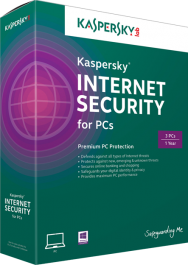Kaspersky Lab released the latest versions of its consumer-focused security solutions this week, including Kaspersky Anti-Virus 2014 and Kaspersky Internet Security 2014, both of which bring improved user protection with new antivirus technologies, the company said.
According the Moscow-based security firm, both products now include Kaspersky Lab’s proprietary ZETA Shield antivirus technology, which performs an in-depth scan of files and applications running on systems to detect malware that may hide deep within individual components of each program.
Originally unveiled during a launch event earlier this summer, Kaspersky explained how ZETA was designed to counteract targeted attacks that rely on exploits targeting software vulnerabilities by scanning the data stream for code fragments with the characteristics of exploits.
 The updated security software offerings also boast enhancements to existing protection technologies, including its Safe Money and Automatic Exploit Prevention technologies, and other new features such as Trusted Applications mode.
The updated security software offerings also boast enhancements to existing protection technologies, including its Safe Money and Automatic Exploit Prevention technologies, and other new features such as Trusted Applications mode.
Kaspersky’s Automatic Exploit Prevention technology, originally added to the product in 2013, monitors programs that are most frequently targeted by cybercriminals – such as Java and Adobe Reader – to block attackers from targeting vulnerabilities in legitimate software to compromise systems.
Furthermore, both 2014 products offer new protections against ransomware attacks with what Kaspersky Lab calls “screen lockers technology”. According the company, if users with its 2014 solutions installed face a demand for payment to unblock their computer, they can enter a key combination that triggers the Kaspersky security software to find and remove the malware.
The company’s “Safe Money technology” has been improved in Kaspersky Internet Security 2014, including support for more Web browsers, and a significantly expanded list of trusted online banking sites, payment services, and online stores.
Kaspersky Internet Security 2014 also incorporates application whitelisting technology, which the company is calling “Trusted Applications mode”. Similar to other whitelisting solutions, the feature protects systems by only allowing applications to run that have been identified as safe. The security software also checks the legitimacy of programs to provide a higher level of security.
The Trusted Applications feature is powered by constantly a updated whitelisting database of legitimate applications. Kaspersky says its database currently has over 700 million unique entries containing thorough descriptions of popular applications including operating systems, browsers, image viewers, video players, games, and more.
For users with children, Kaspersky Internet Security 2014 offers improved Parental Control capabilities.
Both 2014 security products have also been optimized to minimize consumption of system resources, along with improvements to the user interface.
Available immediately, a 3-user licenses for a 1-year period costs $79.95 for Kaspersky Internet Security and $59.95 for Kaspersky Anti-Virus. Existing customers can upgrade free of charge from Kaspersky Internet Security 2013 and Kaspersky Anti-Virus 2013.















